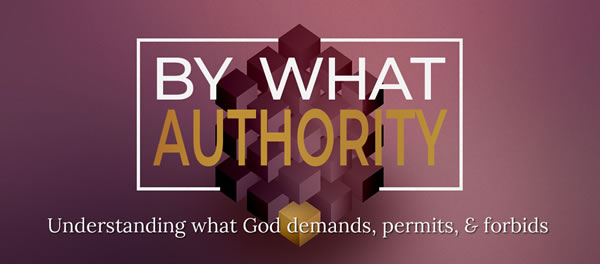Blog
Gospel Meeting with Brett Hogland
Tuesday, May 27, 2025
Brett Hogland of Blue Springs, MO, will be holding a gospel meeting for us –.
If you are in the area, we would be happy to have you visit with us as Brett speaks to us on the following topics:
Can We Trust the Bible?
Thursday, July 04, 2024
According to a recent (2022) Barna poll, a record-low 20% of Americans believe the Bible is literally the word of God, and a record-high 29% believe it is a collection of man-made fables, myths, histories, and moral precepts.
Now, more than ever, Christians must be able to answer the question, “Can we trust the Bible?” As the following sermons demonstrate, the answer is an emphatic, “Yes!”
- Inspiration (Part 1)
- Inspiration (Part 2)
- Canonization (Part 1)
- Canonization (Part 2)
- Transmission (Part 1)
- Transmission (Part 2)
By What Authority
Sunday, December 29, 2019
There is much disagreement about what God demands, permits, and forbids. We can determine what authority God has granted us to act individually or as a church, but it all hinges on how we interpret the information God has communicated to us in His word.
As you will see in the following lessons, whether it concerns our personal moral behavior or how we work and worship as a church, there is no special code for understanding God. God communicates to us the very same way we communicate to each other. If that is the case, then we need to pay close attention both to what He says and to what He does not.
Why I Trust the Scriptures
Sunday, December 29, 2019
With increasing volume and frequency, many challenge the idea that the Bible is direct revelation from God. Can we have confidence that it is? What about differences between texts in different manuscripts? Why do we have all of these different translations?
We can trust the scriptures. Here is why:
Thinking
Saturday, December 28, 2019
Detractors routinely deride Christians as duped simpletons. Unfortunately, too many of us hand them fuel for that fire.
In contrast, the Bible is full of examples, encouragements, even outright commands to think, to meditate:
Make me understand the way of Your precepts;
So shall I meditate on Your wonderful works.
—Psalm 119:27 NKJV
“Come now, and let us reason together,” says the Lord … .
—Isaiah 1:18 NKJV
“What do you think about the Christ? Whose Son is He?”
—Matthew 22:42 NKJV
Finally, brethren, whatever things are true, whatever things are noble, whatever things are just, whatever things are pure, whatever things are lovely, whatever things are of good report, if there is any virtue and if there is anything praiseworthy—meditate on these things.
—Philippians 4:8 NKJV
Here is a series of lessons that encourage us to give more and deeper thought to God, His word, and our service to Him:


